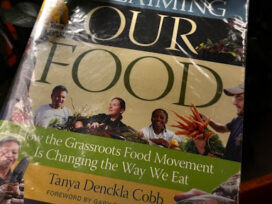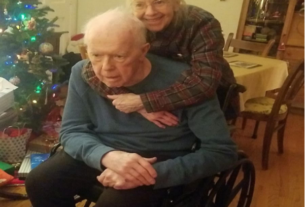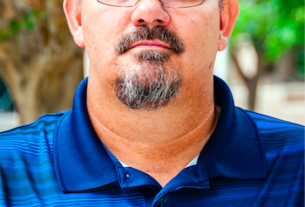Scottsville Board of Supervisors Candidate Visit
Tiana Sigala, staff writer
On April 25, PVCC hosted Donna Price, candidate for the Scottsville Board of Supervisors. Price came to PVCC in collaboration with Assistant Professor of Political Science Connie Jorgensen to speak to classes about her motivation to run for public office and her desire to impress that motivation on to students.
Price, a military lawyer for 25 years and a civilian lawyer for many years following, took care to detail the inequalities she witnessed which gave rise to her motivation to work in law. When she was young and surrounded by fellow Roman Catholics, it took John F. Kennedy’s presidential campaign to first grasp the religious discrimination that pervaded our country.
Price grew up in a small town in Louisiana, and felt a slight culture shift upon moving to Atlanta. “Everyone knew their place,” she said of her small town, as opposed to Atlanta, where signage in public spaces was required to remind black citizens of their supposed subserviency, she took notice of the strong racial discrimination that lay teeming in the backbone of our country.
“That just struck me as wrong. It was legally permissible,” she said, framing the word permissible in air quotes, “but it was morally wrong.”
Price developed views on gender discrimination while serving in the Navy, describing a combat exclusionary rule which barred women from being able to serve in combat-related areas. This struck a chord, as Price served in the Navy as a transgender woman, presenting as a man.
She said, “Had the Navy found out I was transgender while I was serving, I would have been separated and the basis would have been sexual perversion, despite never having done anything overt, or wrong.”
Price’s strong sense of justice expands to issues such as affordable housing. She spoke of Scottsville tenderly, describing its small-town feel and the lasting rural quality the town has maintained. She displayed an encyclopedic knowledge of the town’s existing zoning laws while describing changes she would like to make in order to bring more families ––rather than large developments–– to Scottsville.
“If you want a live town or city, you have to have people living there,” she said, “If we can increase the residential density in Scottsville, that’s going to bring more people, more restaurants and shops.” Her aim is to support growth in the town and to bring in development and investment that would bolster the existing culture, not diminish it.
As a politician, Price stresses her commitment to progressive policy over party. Though running as a Democrat, she said, “I am much more aligned philosophically with the firebrands, AOC, and some of the newcomers.”
The voters of Scottsville are primarily Republican, but Price believes in her connection with constituents, and she described friendships she has made in Scottsville and her commitment to local enterprise.
“I’ve made great connections and friendships down in Scottsville. I buy my books at Baine’s, not at Amazon,” she said, “If you want local businesses, you have to support local business.”
Price presents issues such as thriving local business, affordable housing, and the support of continued rurality in her town as partisan issues, as interests of the residents of Scottsville that rise above party lines.
Another issue Price considers non-partisan is that of representation. “I truly believe in inclusiveness and diversity,” she said, solemnly, “if every member of the deciding body comes from the exact same background, then you’re going to get answers that works perfectly for that group and doesn’t do anything for other groups.”
Price expressed her belief in the value of representation beyond representative democracy. She hopes that her campaign, successful or not, can serve as representation for those she describes as “other.” She referred to herself as other, as well as people who do not enjoy the privilege of seeing themselves mirrored in roles such as politics, in the real world or in media.
To Price, being able to place oneself in such roles is pivotal, and she hopes that her candidacy might serve as the representation necessary to convince others that they have a place in politics.
“I had to spend thirty years of my adult professional life hidden, and I don’t anymore,” she said, “Whether I win or lose, this is my way to make the world a better place.”







